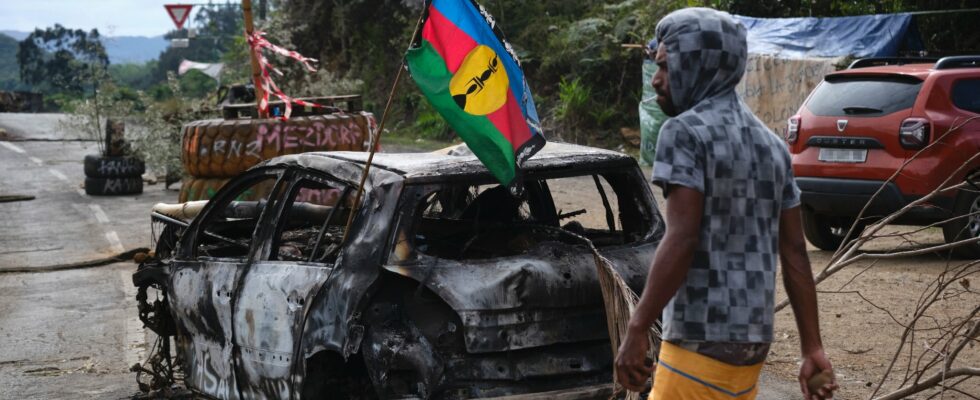And in the meantime, the downgrading continues. While paralysis seems to threaten the country, in the absence of a majority in the National Assembly, the most urgent problems, those that require firm and clear-cut decisions, are not being addressed. The risk? That frustrations will imperceptibly drift into anger, and that France will wake up, one day soon, more distanced and fractured than ever. The proof in three with the files of the school, the medical deserts and New Caledonia.
The school
December 2023. The level of French students plummets in maths and reading comprehension, according to the Pisa ranking, common to OECD countries. It stagnates in science. In these three disciplines, France is ejected from the world top 20. A debacle. Gabriel Attal, then Minister of National Education, announces a series of measures to ward off the decline. Level groups in middle school, return of repeating, compulsory certificate to access general high school from 2025… Emblematic reforms extremely linked to the arbitration of the future Prime Minister, which could be called into question by another government.
Above all, these measures do not take into account one of the main scourges of national education: the teacher malaise. Becoming a teacher is no longer exciting, more than 3,000 positions have not found takers in 2024. What to do? Between the New Popular Front, Renaissance and the National Rally, no one agrees. The left wants to increase civil servants by 10% and plans to recruit up to 160,000 teachers, at a cost of 6.8 billion euros according to the Montaigne Institute. The Macronists emphasize the modernization of education and student orientations from middle school onwards. The National Rally claims to abolish the Attal reforms and eliminate the comprehensive middle school. In the absence of even a minimal consensus, the risk is to end up in an increasingly ineffective state of stagnation for generations of students at a faltering level.
Medical deserts
In the absence of a majority, it is impossible to make progress on health deserts. However, there is also an urgent need here: 30% of French people now live in a deserted area, and three-quarters of the departments have seen their medical density deteriorate in recent years. “Much remains to be done,” warns Paul Frappé, president of the College of General Medicine. The additional doctors from the end of the numerus clausus should provide some breathing space, but will not be trained… until 2031. And there is no guarantee that they will settle in the deserts.
The Valletoux law passed at the end of 2023 was supposed to fix the situation, but 70% of its content is blocked, due to the lack of an executive capable of issuing implementing decrees. As for the fourth year of internship in medical deserts, it is frozen, the government was unable to finalize the regulatory texts in time.
In the absence of a majority, it is difficult to advance major issues such as that of doctors in poorly-off areas. The left dreams of limiting freedom of establishment, Emmanuel Macron’s friends do not want to hear about it. The status quo would feed the feeling of medical “downgrading”, which is sickening France: “Health is the cement of the republican pact”, summarizes Emmanuel Vigneron, health geographer.
New Caledonia
It is a crisis that never ends. Since the outbreak of riots in New Caledonia on May 13, the situation has been getting bogged down. By announcing the suspension of the constitutional bill on the thawing of the electoral body, Emmanuel Macron thought he could “give all his strength to dialogue on the ground and to the return to order”. But if the clocks have stopped in Paris, the troubles continue in the Pacific.
On July 10, the Noumea prosecutor’s office announced that a man had been killed by law enforcement while he was shooting at gendarmes. This tenth victim is a reminder of the impasse in which the archipelago finds itself: given the lack of a majority in the Assembly, the constitutional bill has been postponed indefinitely. However, without this change to the electorate, it would be impossible to organize the next provincial elections, which were to take place no later than December 15.
Meanwhile, distrust is growing in Noumea. Early legislative elections have led to the election of an independence leader for the first time in thirty-eight years. His name is not unknown: Emmanuel Tjibaou is the son of Jean-Marie Tjibaou, a Kanak leader assassinated a year after signing the Matignon Accords in 1989. A name to reopen dialogue… or mark a definitive break?
.
